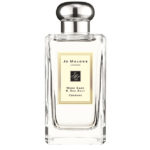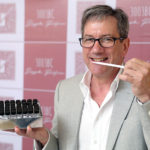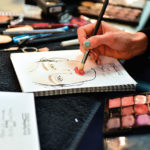Perfumers Manan Gandhi And Pulkit Malhotra On Their Indigenous Brands


A great part of the looking-and-feeling-good process invariably involves the business of smelling good, too. But while it normally entails just a quick spray here and there for most, there’s actually a great deal of thought that goes into the developing of these scents. Just ask Manan Gandhi and Pulkit Malhotra, two young perfumers in the Indian perfume industry.
All In The Family
Both Gandhi and Malhotra credit their families for their interest in the field. “My family has been in the business of supplying ingredients to perfume houses in India for over 30 years, so I literally grew up in labs, around fragrances. After completing my education, this seemed an obvious career path as I had a working knowledge of the business and decided to expand it to France.
While working in Grasse, I had the unique opportunity to interact with some of the largest independent perfumery houses, and that’s when the idea of building my own label germinated. I wanted to build a range that paid homage to beautiful Indian naturals, be it spices or florals,” explains Gandhi.
Malhotra attributes his interest in the business to his father. “I remember, as a child, my favourite outings used to be visiting his lab and smelling the raw materials in his library. That was when I fell in love with fragrances,” he states. But his love for aromas was largely developed later, during the time he spent under the tutelage of master perfumer Max Gavarry who, Malhotra says “is a living encyclopaedia on perfumery. He taught me that a fragrance has to evoke a memory.”
What’s Your Flavour?
Bombay Perfumery currently has eight fragrances under its belt, with a few bearing the distinction of comprising strong ‘ethnic’ ingredients. Even though the brand has been around for only a year, Gandhi insists that the response has been encouraging. “We’ve been overwhelmed with orders not just from the metros and overseas but also from smaller cities. Also, consumer attitudes are slowly changing — people want to support home-grown labels that are taking a different route and they’re becoming more open to the idea of moving away from the accepted norms of luxury,” he elaborates.
Interestingly enough, a couple of his brand’s fragrances are unisex in nature. Gandhi explains, “Fragrance is a very personal choice; I didn’t want to limit people’s curiosity for experimentation just because of gender classifications. In general, a lot of women love to wear men’s fragrances because they believe these are stronger and last longer. What you should really test for is how the perfume wears on your skin and whether you love wearing a particular scent.”
Mocemsa’s approach to its 12 fragrances, too, followed strict market variables. “Our perfumes were designed keeping three factors in mind: climatic conditions, people’s preferences and value for money. Mocemsa is Persian for ‘like the weather’ — we believe that the climatic conditions have a strong role to play in the output or the effects of a fragrance. The perfumes have been designed keeping in mind India’s climate, so that they can withstand the tough weather conditions and sustain a long-lasting effect on use. We realise that Indians’ preferences are not necessarily akin to that of say, Europeans,” details Malhotra.
The Science Of Things
As the perfume-making business starts to steadily gain traction in India, Malhotra offers his advice to novices looking to break into the Indian market. “You need to know the tastes and preferences of your consumers. It’s important to work with raw materials that are sustainable in the climatic conditions of that particular region,” he reveals.
Gandhi opines, “I think a lot of people don’t realise that this is a serious science. Most of the new generation of perfumers are trained as analytical chemists prior to joining perfumer training, and that science background is definitely a plus. It is also something that requires several years of training, so young perfumers should be ready for a long apprenticeship before getting the chance to work on interesting briefs.”
Related posts from Verve:
Verve Trending
Sorry. No data so far.
us on Facebook to stay updated with the latest trends









